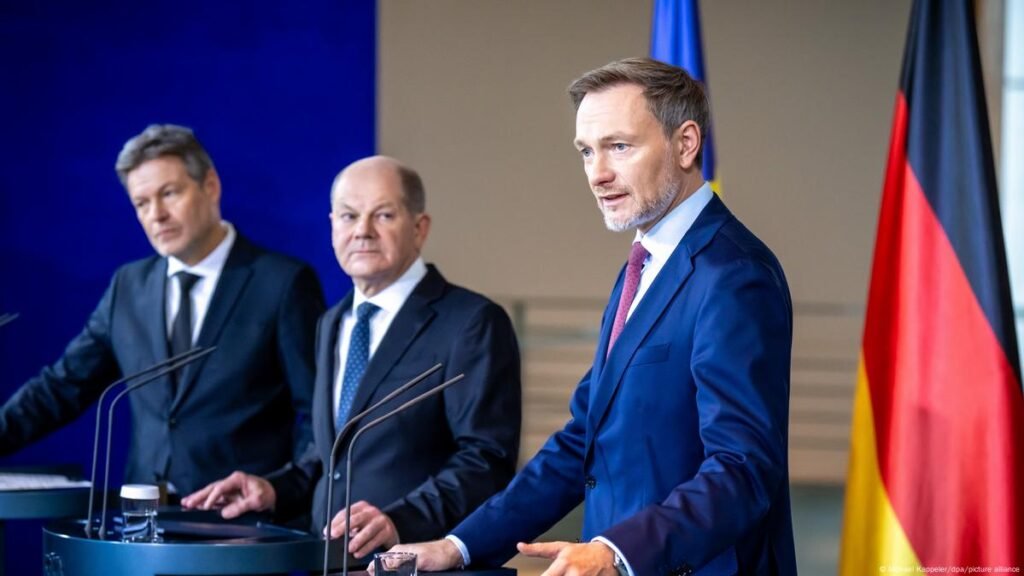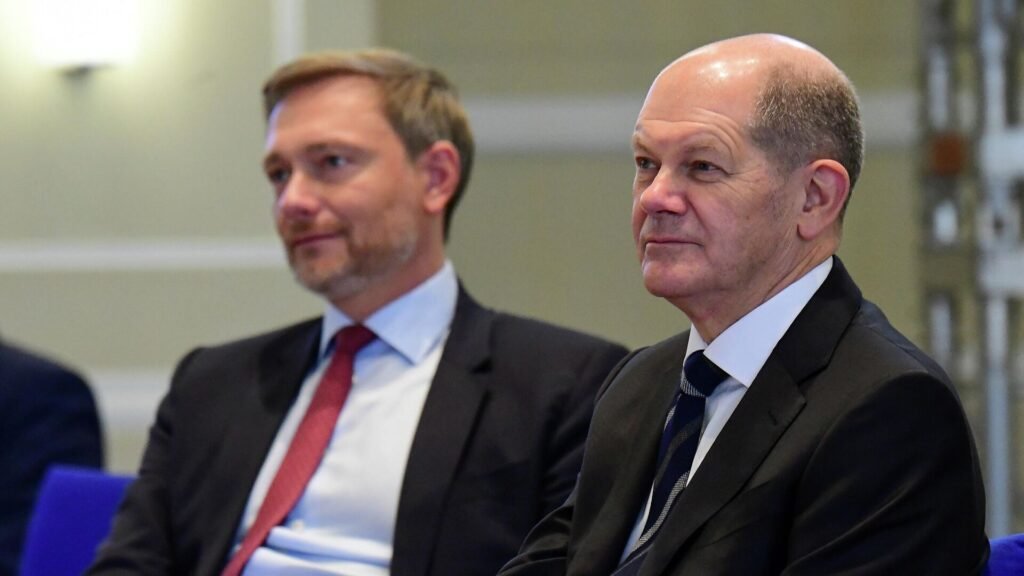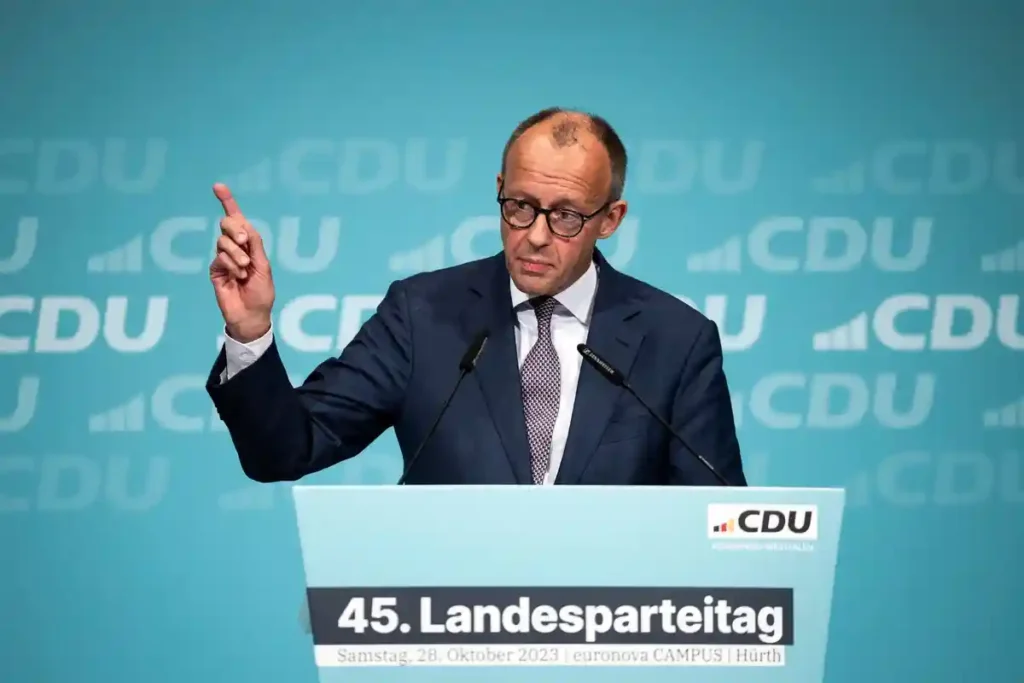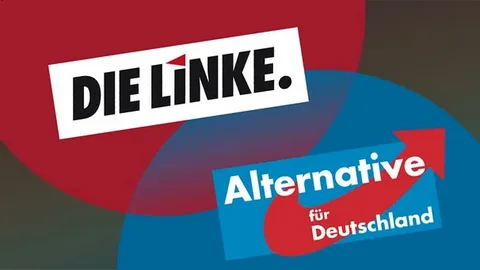Germany’s Political Upheaval: Coalition Collapse and Growing Demand for Radical Change
Germany faces a period of significant political instability following the recent collapse of its coalition government. The alliance of Social Democrats (SPD), Greens, and Liberals (FDP) has been unable to navigate the country’s worsening economic crisis, culminating in a deadlock over the draft budget for 2025. This crisis of governance reflects the entrenched divisions within the coalition and exposes a deepening crisis of capitalism in Germany. The inability to reconcile differing economic visions highlights the growing tension within German politics as competing parties seek to address the structural challenges confronting the nation.
The immediate cause of the coalition’s collapse was the decision by Chancellor Olaf Scholz (SPD) to dismiss Finance Minister Christian Lindner (FDP), whose leaked draft budget proposed sweeping cuts to social spending. Lindner’s proposals sought to reduce unemployment benefits, cut funding for asylum seekers, and even increase the retirement age. His plan, which the SPD and Greens vehemently opposed, aimed to shift the burden of economic adjustment onto the working class and vulnerable populations, drawing widespread condemnation from both within and outside the coalition.

A Crisis of Capitalist Governance
Germany’s economic challenges are rooted in systemic issues that the coalition government was ill-equipped to resolve. According to the German Economic Institute, the nation requires an estimated €600 billion in infrastructure investment over the next decade to remain competitive. This figure excludes significant additional demands for military spending and healthcare, which have been exacerbated by Germany’s commitments within NATO and its aging population.
Despite this pressing need, the 2025 budget proposals prioritized measures such as equity investments in Deutsche Bahn and the stock market to support pension funds over essential infrastructure development.
The FDP’s approach, which centered on corporate tax breaks and reduced public spending, reflects a broader trend among conservative factions to protect capital interests at the expense of the working population. Industry leaders, including Gesamtmetall’s head Stefan Wolf, endorsed Lindner’s proposed cuts, highlighting the alignment between corporate priorities and the FDP’s policy direction.
SPD and Greens Resist Austerity but Face Limited Options
The SPD and Greens rejected Lindner’s proposed budget cuts, maintaining that they would finance their initiatives without aggressive austerity measures against the public. Yet, Germany’s constitutional limits on debt make this approach challenging. While the coalition sought to avoid attacks on the working class, its inability to deliver necessary investments through debt-led growth revealed the limitations of reformist policies within a capitalist framework. These constraints ultimately left the coalition unable to chart a viable path forward, forcing Scholz to announce new elections scheduled for March 2025. The SPD and Greens’ resistance to Lindner’s cuts, although principled, has sparked debate about the extent to which their policies can address Germany’s structural economic woes.

Analysts suggest that without major changes to Germany’s fiscal policy, even a future government would struggle to avoid imposing austerity measures on the population. The collapse of this coalition has intensified calls for a new political approach, with a segment of the electorate now pushing for radical change.
Prospects for a Grand Coalition and Capital’s Influence
Polls indicate that new elections may lead to a Grand Coalition between the SPD and CDU, with Friedrich Merz of the CDU likely to assume the chancellorship. This coalition would be heavily influenced by capital interests, aiming to balance austerity with limited social reforms to maintain stability. A CDU-SPD alliance, while ideologically divergent, could stabilize governance temporarily, allowing the SPD to frame austerity as a “necessary measure” to protect democracy. Yet, such a coalition would face opposition from the working class, given its likely stance on restrictive economic and social policies.
A potential Grand Coalition is expected to take a hardline stance on immigration, asylum policies, and military spending, resonating with growing nationalist sentiments within Germany. Following recent security incidents, both SPD and CDU have aligned with stricter domestic policies, including increased surveillance and expanded police powers. The Grand Coalition may also face pressure to continue supporting international military efforts, particularly in the Middle East and Ukraine, to bolster Germany’s standing within the European Union.

The Need for Revolutionary Politics
The dissolution of the coalition government underscores the inability of existing parties to address the deep-seated economic crisis without resorting to austerity. Critics argue that the capitalist system, constrained by profit motives and competitive pressures, inherently limits Germany’s ability to protect its working-class population. Economic instability and global market pressures have led to heightened calls for systemic change. For segments of the electorate disillusioned with traditional parties, only revolutionary transformation promises an escape from perpetual crisis and the relentless imposition of austerity.
The upcoming election, however, presents limited choices for those seeking meaningful change. The Alternative for Germany (AfD) has risen in influence but promotes a divisive platform that undermines workers’ solidarity through its rhetoric on race, gender, and national identity. Meanwhile, the Left Party (Die Linke) has struggled to retain support, hampered by internal conflicts and its inability to offer a coherent alternative to neoliberal policies.
Toward a Radical Transformation

As Germany faces an uncertain future, the working class is confronted with the need for a political movement that genuinely advocates for its interests. The current economic crisis, exacerbated by capitalist competition and corporate influence, reveals the limitations of reformist approaches. Germany’s political class, divided and beholden to capital, has shown itself incapable of addressing the fundamental contradictions of the system.
In this context, a call for revolutionary change resonates with a growing portion of the population. The construction of a political organization that unites workers, challenges capitalist structures, and pursues systemic change has become essential. Amid rising economic challenges, military commitments, and social strain, the demand for a fundamentally different approach to governance and economic organization continues to gain momentum.

